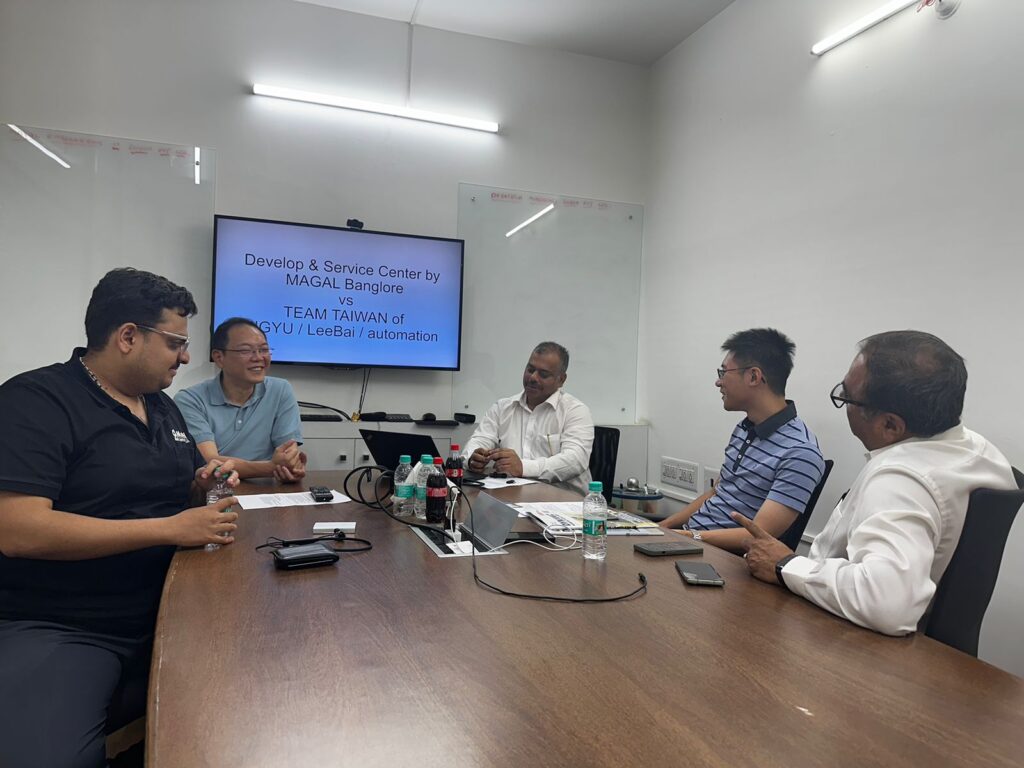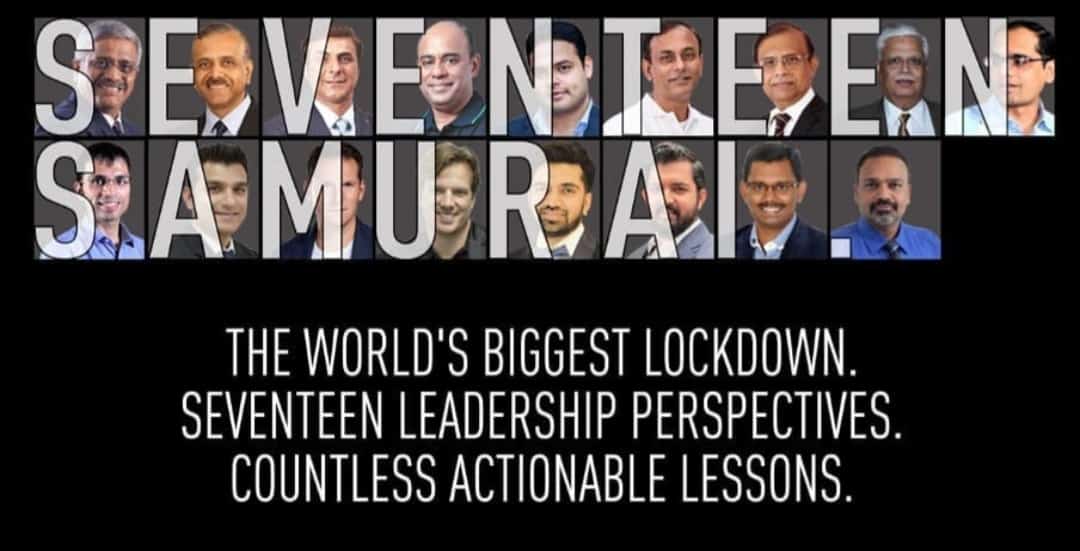Driving the Future of EV Manufacturing: A Powerhouse Collaboration Between Magal Engineering, Ingyu, and Lee Bai
In an exclusive interview, the leadership teams from India’s Magal Engineering and Taiwan’s Ingyu Precision Industries and Lee Bai Co., Ltd. discuss their strategic partnership, cutting-edge 0.25 mm EV motor lamination stamping solutions, and how they aim to transform India’s electric mobility manufacturing landscape.

An insightful conversation with Mr. M. K. Narasinga Rao, Managing Director, and Mr. Skanda Magal, Product Manager of Magal Engineering Co. India Pvt. Ltd., on the company’s role in advancing EV manufacturing in India.
Q: Can you walk us through Magal Engineering’s core competencies and its role in the Indian automotive and manufacturing sectors?
Mr. M. K. Narasinga Rao: Magal Engineering has been a trusted name in Indian manufacturing for over 30 years. Our expertise lies in precision tooling, industrial automation, and turnkey press line solutions. We primarily cater to the automotive, EV, and general engineering industries. Our facility in Bengaluru supports our clients with end-to-end services, including sales, service, and spares. This local presence is critical for maintaining uptime and productivity.
Q: What strategic vision led to the collaboration with Ingyu and Leebai? How does this partnership align with Magal’s growth plans?
Mr. Skanda Magal : As the EV sector rapidly evolves, we identified a clear gap in high-precision, high-speed lamination stamping solutions. Partnering with Ingyu and Leebai allows us to offer cutting-edge technology in India. Ingyu provides advanced press machines, Leebai contributes automation systems, and we offer tool design, local integration, and support. This collaboration aligns perfectly with our growth vision to be at the forefront of India’s EV manufacturing revolution.
Q: How do you view India’s potential as a manufacturing hub, especially in terms of demand for advanced press and automation solutions?
Mr. M. K. Narasinga Rao: India is quickly emerging as a global manufacturing powerhouse. With policy pushes like the PLI scheme and the rise of e-mobility, manufacturers are demanding more advanced, reliable, and automated solutions. This is a turning point for the industry, and our partnership is well-positioned to meet this rising demand with world-class technology.
Q: What specific offerings or technological advantages will Magal deliver to Indian clients through this collaboration?
Mr. Skanda Magal : Our core offering is a high-speed lamination stamping solution capable of handling 0.25 mm thickness—critical for efficient EV motors. The combination of Ingyu’s press technology, Leebai’s automation, and our local engineering and support ensures reliability, high throughput, and fast service response. We also provide smart automation features and predictive maintenance tools.
A conversation with Mr. Mike Tung, General Manager of ING YU Precision Industries Co. Ltd., on the company’s global expertise in high-speed press technology and its plans for the Indian EV manufacturing market.

Q: Please introduce Ingyu and its global footprint, especially in high-speed press machines and forming technology.
Mr. Mike Tung: Ingyu has been a global leader in high-speed and servo press manufacturing for over 40 years. We operate in over 50 countries, providing advanced forming technologies to industries like EV, electronics, and precision metal components. Our machines are known for their accuracy, durability, and ability to handle extremely thin materials at high speeds.
Q: Can you share a successful case study where Ingyu’s technology significantly impacted a customer’s production efficiency?
Mr. Mike Tung: Certainly. A Southeast Asian EV parts supplier switched from conventional presses to our servo-driven high-speed presses. As a result, their yield increased by 98%, and setup time was reduced by 40%. This enabled them to expand production and enter new export markets with confidence.
Q: How do you perceive India’s manufacturing landscape, and what excites you most about this market?
Mr. Mike Tung: India’s focus on electrification and local manufacturing presents immense potential. The scale of the market and the government’s proactive policies are very encouraging. We’re excited to introduce our advanced press technologies to Indian manufacturers and help them achieve global standards.
Q: What is Ingyu’s strategy to serve Indian customers in collaboration with Magal and Leebai?
Mr. Mike Tung: We are committed to long-term success in India. Through Magal, we are enabling local service, spares, and training support. This collaboration ensures technology transfer and on-ground responsiveness. We believe this hybrid model—global tech with local service—is ideal for Indian clients.
Insights from Mr. Chunyeh Hu, Sales Manager at Lee Bai Co. Ltd., on automation trends and the company’s role in advancing EV manufacturing in India.

Q: Could you give us a snapshot of Leebai’s specialties in automation and handling systems and its journey so far?
Mr. Chunyeh Hu: Leebai has been a pioneer in coil handling, stacking, and automation systems for over 35 years. Our solutions are used in high-speed stamping applications where precision and speed are critical. We design compact and intelligent systems that reduce downtime, enhance quality, and improve overall production efficiency.
Q: What role does Leebai play in this three-way collaboration with Magal and Ingyu for the Indian market?
Mr. Chunyeh Hu: Our role is to deliver seamless automation for the press lines, including coil feeders, straighteners, and stackers. These systems ensure synchronized operation and material flow. We work closely with Magal to localize and integrate our systems, ensuring they meet the specific requirements of Indian manufacturers.
Q: What’s your perspective on India’s automation needs and the readiness of industries to adopt advanced handling technologies?
Mr. Chunyeh Hu: We see a growing openness in India toward automation. The focus is shifting from cost to quality and efficiency. Many manufacturers are now investing in automation to improve consistency and reduce errors. India is definitely ready for advanced handling systems, especially in EV manufacturing.
Q: Are there any specific products or solutions Leebai plans to customize or introduce exclusively for Indian clients?
Mr. Chunyeh Hu: Yes, we are developing compact coil handling and stacking systems specifically designed for India’s EV motor segment, especially for two- and three-wheelers. These solutions are being optimized for smaller factory footprints and thinner laminations, which are typical in the Indian context.



